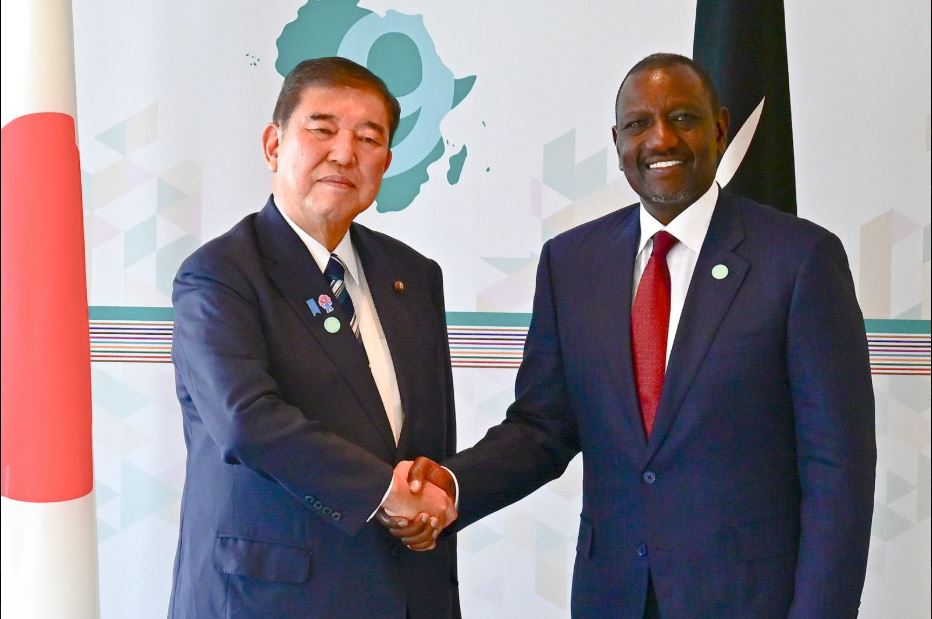

Japanese Prime Minister Shigeru Ishiba opened the Tokyo International
Conference on African Development (TICAD) in Yokohama with an ambitious
proposal to establish an "Indian Ocean-Africa economic zone".
This initiative aims to enhance trade and
investment opportunities between Japan and African nations, capitalising on the
continent's vast economic potential.
Ishiba's vision also seeks to counterbalance
China's growing influence in Africa, positioning Japan as a key player in the
region's development.
Among the 40 African presidents attending the
conference is Kenya's President William Ruto, who emphasised the importance of
collaboration in tackling Africa's pressing challenges.
In his address, Ishiba stressed the need for
private-sector-driven investments, declaring:
"We will strengthen
collaboration between government and business circles."
His commitment to cultivate 30,000 artificial
intelligence (AI) experts in Africa over the next three years is particularly
relevant for Kenya, which is rapidly advancing in technology and innovation.
The proposed AI programs are set to be
implemented in various Kenyan universities, focusing on critical sectors such
as agriculture and logistics, areas essential for the country's economic
growth.
By nurturing a skilled workforce, this
initiative aims to empower Kenya's youth and foster innovation.
Ishiba also outlined plans to forge
partnerships among governments, industries, and academic institutions to
promote free trade in the region.
This collaborative framework is crucial for
enhancing Africa's regional integration and industrial development, resonating
deeply in Kenya, where strengthening trade relationships with neighboring
countries is vital for economic stability.
Throughout the three-day conference,
discussions will revolve around three main agendas: peace and stability,
economic development, and social issues such as health, climate change, and
youth exchanges.
The anticipated "Yokohama Declaration," to be released at the
conference's conclusion, will set forth commitments and strategies for future
cooperation.
As Africa's population is projected to grow to
approximately 2.5 billion by 2050, the continent is increasingly recognised as
a promising business destination.
However, significant challenges remain in
developing industries and creating jobs that ensure social stability.
Ishiba's initiative, which includes the
training of 300,000 individuals across various fields, including health and
technology, aims to address these pressing issues.
Kenya, with its dynamic tech sector and
youthful demographic, stands to gain immensely from these developments.
The partnership with Japanese institutions,
particularly in AI and data science, will empower the next generation of Kenyan
innovators and entrepreneurs.
This focus aligns seamlessly with Kenya's
Vision 2030, which aspires to transform the country into a newly industrialising,
middle-income nation.
The TICAD conference also unfolds against a
backdrop of shifting global dynamics, marked by increasing Chinese investment
in Africa and changes in U.S. foreign aid policies.
As Ishiba engages in bilateral summits with
various African leaders, including President Ruto, the potential for new
partnerships and opportunities for Kenya and its neighbours is palpable.












